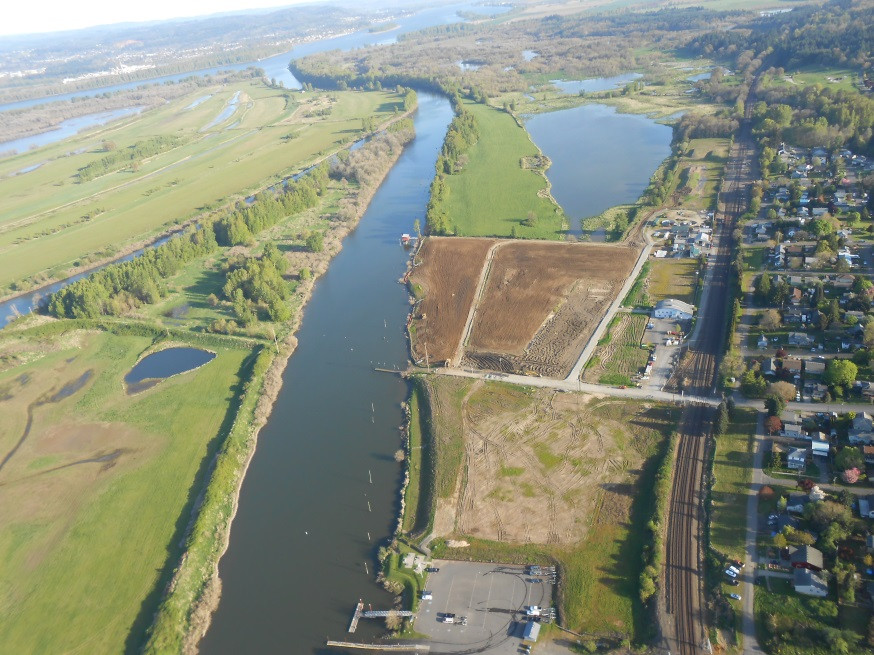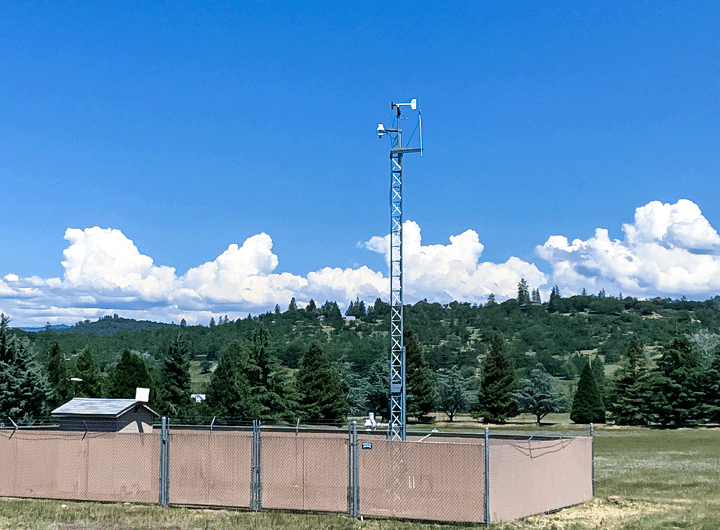Funding
State and Federal Grant Funding Opportunities August 2024

Reminder: The Community Change Grants Program Application Period Ends in November
The single-largest program investment aimed at redressing environmental and climate injustices will close this fall.
The U.S. Environmental Protection Agency anticipates awarding approximately $2 billion in funding for communities that have historically faced burdens from legacy pollution, disinvestment, and the effects of climate change. Successful applications will feature community-driven, change-making local projects that center collaborative efforts for healthier, safer, and more prosperous communities under two tracks:
- Track I, Community-Driven Investments for Change, is open to tribes and disadvantaged unincorporated communities that propose projects that will meaningfully improve the environmental, climate, and resilience conditions affecting those communities. Awards under Track I are expected to be $10 to 20 million each, and EPA expects to make approximately 150 awards.
- Track II, Meaningful Engagement for Equitable Governance, will support engagement of disadvantaged communities in government efforts to advance environmental and climate justice. Awards under Track II are expected to be $1 to 3 million each and EPA expects to make approximately 20 awards.
Eligible applicants include a partnership between two community-based nonprofit organizations (CBOs), or a partnership between a CBO and a federally recognized tribe, a local government, or an institution of higher education. Examples of eligible project types include reducing urban heat island effects by planting trees, green stormwater projects, purchase of zero-emissions vehicles, retrofitting buildings with energy-efficiency measures, and more. At least one aspect of the project must be aligned with climate action strategies described in the funding guidance. No matching funds are required for this opportunity. Applications are due November 21, 2024. Learn more at the Environmental and Climate Justice Community Change Grants Program website.
Reconnecting Communities Pilot Application Period Opens
Funding focuses on transportation solutions to reconnect disadvantaged communities.
The U.S. Department of Transportation is providing up to $607 million to improve transportation access to daily needs such as jobs, education, healthcare, food, nature, and recreation and to foster equitable development and restoration in disadvantaged communities. The funding can be used for planning or capital construction grants as well as technical assistance.
- Community Planning grants will provide funds for planning activities to support future construction projects and allow for innovative community planning to address localized transportation challenges through community engagement, planning, preliminary design or engineering, zoning reform, transit-oriented development, and other activities. A 20 percent local match is required.
- Capital Construction grants will fund both reconnecting-focused projects and smaller projects focused on reducing environmental harm and improving access in disadvantaged communities, including removal of a dividing facility, Complete Streets activities, and enhancing community connectivity. A 50 percent local match is required.
State and local governments, tribes, metropolitan planning organizations, and nonprofits are eligible to apply. Applications are due September 30, 2024. To learn more, visit the Reconnecting Communities Pilot Grant Program page.
$20 Million in Federal Funding Available for Preconstruction Planning for Bridges
The program aims to improve safety and reliability for bridges on the National Bridge Inventory list.
The Federal Highway Administration’s Bridge Investment Program includes a $20 million Planning grant program for bridges on the National Bridge Inventory. Eligible activities include equity-informed planning, feasibility analyses, and revenue forecasting. Projects will be evaluated on how well they improve the safety, efficiency, and reliability of movement over bridges and help reduce the number of bridges in poor or fair condition or that don’t meet current standards. Eligible applicants include state, tribal, and local governments; special purpose districts; transportation authorities; federal land management agencies; and others. Geographic diversity and urban/rural balance will be considered in awarding funds. There is no minimum or maximum award size; a 20% match will be required. Applications are due on October 1, 2024. To learn more, visit the Bridge Investment Program website.
Up to $9.6 Million to Reduce Methane from Landfills in Washington
Program supports cutting methane levels in municipal landfills by 2050.
The Washington State Department of Ecology is making $9.6 million available to local government and tribal owners and operators of municipal solid waste landfills for projects that lead to the reduction of methane emissions. Projects can include planning (e.g., engineering and design, preparation and site surveys, permits and fees); monitoring; purchasing, installing, or repairing landfill gas collection and control systems or components; as well as projects that maximize landfill gas collection above the minimum methane emissions requirements in the Revised Code of Washington 70A.540. Award amounts vary according to project type. Eligible applicants will have completed initial waste in place reporting as required under Washington Administrative Code 173-408. Applications are due October 1, 2024. To learn more, visit the Landfill Methane Emissions Reduction Grants website.
Up to $3.52 Million for EV Charging Stations in Washington
The Charge Where You Are program supports greater access to EV charging stations especially for areas with underinvestment.
The Washington State Department of Ecology’s Charge Where You Are program is making $3.52 million available to increase community access to Level 2 charging equipment across the state in places where drivers are likely to spend at least 1 to 4 hours. Eligible applicants include state, local, and tribal governments; special districts such as ports and public utility districts; nonprofit organizations; investor-owned utilities; and private firms. The funding allows for installation on government-owned and private properties where there is full public access, at multifamily residential buildings, and in workplaces for fleet charging. Projects must include a minimum of four and a maximum of ten charging plugs. Projects that maximize benefits in communities that experience disproportionate environmental health risks (as shown on the Washington Environmental Health Disparities Map) will receive priority consideration. Funding will be disbursed at up to $10,000 per plug at varying match percentages depending on where the charger will be located and the type of applicant. To read the announcement and application guidelines, visit Ecology’s Washington State Volkswagen Federal Settlement Grant Program page.
$10 Million to Improve Air Quality in 16 Overburdened Communities in Washington
Application period will open August 29.
The Washington State Department of Ecology will make $10 million available for projects to reduce air pollution in 16 areas in the state that have been identified as overburdened and highly impacted by air pollution. Eligible applicants include local and tribal governments and community-based organizations in the 16 affected areas. Eligible projects include community engagement and planning, designing, or implementing projects to reduce emissions. The guidelines will be available when the application period opens on August 29 and applications will be due October 24, 2024. To learn more, visit the Improving Air Quality in Overburdened Communities program page.
Washington Water Quality Combined Funding Program Cycle to Open Soon
The application period will open after mid-August.
The Washington State Department of Ecology’s Water Quality Combined Funding Program will open in mid-August. This megaprogram comprises seven individual programs:
- Washington State Water Pollution Control Revolving Fund Program (which includes funding for emerging contaminants)
- Stormwater Financial Assistance Program
- Centennial Clean Water Program
- Clean Water Act Section 319 Nonpoint Source Grant Program
- Sewer Overflow and Stormwater Reuse Municipal Grants Program
- Stormwater Community-Based Public-Private Partnership Program
- Municipal Stormwater Grants of Regional or Statewide Significance Program
Eligible applicants—including local and tribal governments; ports; sewer, conservation, and irrigation districts; local health jurisdictions; and quasi-municipal corporations—can apply for funding using a single application. Eligible project categories include wastewater, stormwater, and sewer facilities; stormwater activities such as monitoring and planning; and nonpoint source activities such as planning, outreach, monitoring, land acquisition, implementing best practices, and others. Matching requirements vary by funding source; some funds may require up to a 25 percent match. The application period opens in mid-August and closes in October. Ecology will hold applicant workshops from August 13–15. For more information, to register for a workshop, or view the application guidance, visit the Water Quality Combined Funding Program page.
Funding to Reduce the Cost of Building Affordable Housing in Washington
A webinar on the Connecting Housing to Infrastructure program will be held on August 20.
The Washington State Department of Commerce is providing up to $2 million to reimburse developers of affordable housing for utility infrastructure. Awards may be grants or deferred loans, depending on applicant size. Eligible applicants include cities, counties, or public utilities. At least 25 percent of eligible projects must be affordable housing and remain affordable for at least 15 years. Eligible systems include on-site water, sewer, and stormwater connections and right-of-way extensions to serve development and eligible activities range from planning and design and permitting to site preparation, demolition, and construction management. To be eligible, the local government must waive system development charges. No matching funds are required. To register for the webinar and find program guidelines, visit the Connecting Housing to Infrastructure program page.
Up to $2.5 Million Available for Seismic Rehabilitation in Oregon
Program provides funding for the rehabilitation of critical public buildings.
Business Oregon sponsors the Seismic Rehabilitation Grant Program that provides up to $2.5 million to strengthen eligible public buildings. Funding can be used by owners to rehabilitate fire and police stations, sheriff’s offices, 9-1-1 centers, emergency operations centers, hospitals with acute inpatient care facilities, public schools, community colleges, and education service district buildings. Eligible activities include structural and nonstructural improvements as well as architectural, engineering, and project management services. There is no required match for this program; however, leveraging other resources will be considered favorably. Program guidance includes requirements for an engineering study and a benefit-cost analysis. To learn more and connect with program staff, visit the Seismic Rehabilitation Grant Program page.
Funding Available to Increase Instream Water Flows in Oregon
Program supports acquiring temporary or permanent water rights from willing sellers.
The Oregon Watershed Enhancement Board is providing funding to support a range of water acquisition activities that result in improving instream water quality and habitats for aquatic species. Projects can include permanent transfers and temporary leases of instream water rights to incentive-based voluntary curtailments by irrigators. There is no maximum award amount. A 25 percent match is required. Grant applications are due by October 17, 2025. To learn more and review program guidance, visit the Water Acquisition Grants page.
Contact
Contact Seth for help with grant application and strategy.



